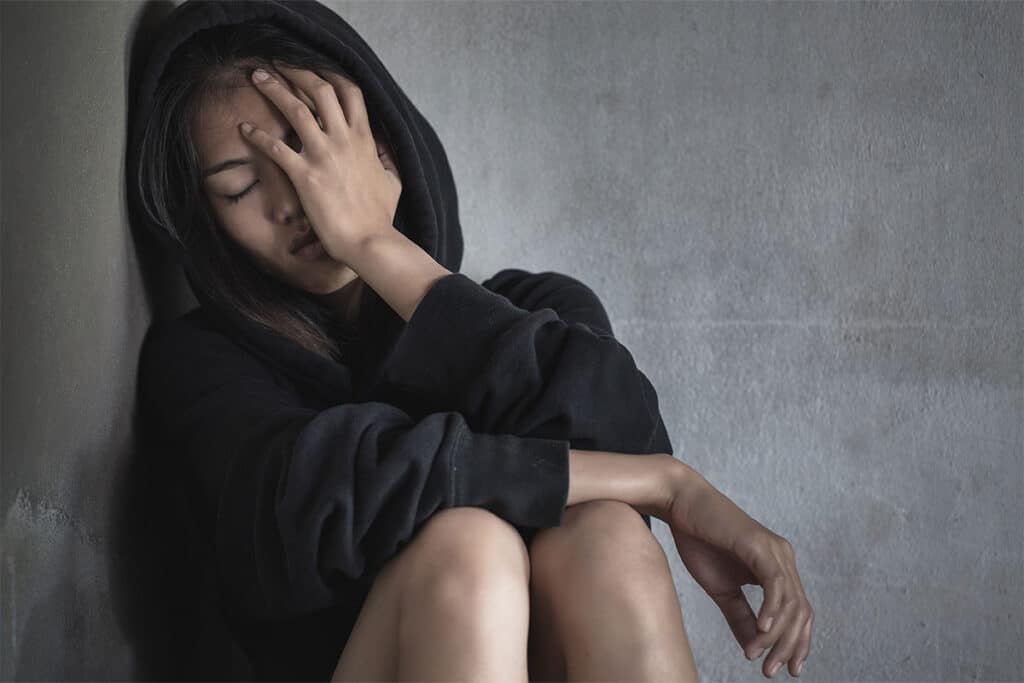A Comprehensive Guide to Relapse Prevention Plan/Treatment
True recovery from addiction demands integrity and realistic thinking.
A perfect healing journey where a patient gets clean and never goes back to their addiction may be possible, but it’s certainly not the typical story. It’s quite common for recovering addicts to experience setbacks while walking the difficult path to sobriety.

These setbacks are usually relapses, and they’re currently viewed as an expected phase of the recovery process.
Table of Contents
- 1 Understanding Relapse
- 2 Why Relapse Prevention Is Crucial
- 3 Components of an Effective Relapse Prevention Plan
- 4 Medication and Relapse Prevention
- 5 The Role of Aftercare in Relapse Prevention
- 6 Handling Potential or Actual Relapses
- 7 Conclusion
- 8 References
Understanding Relapse
To effectively deal with relapse, we first need insight into what relapse is.
Definition
Relapse is returning to addiction levels that are close to or the same as before starting the recovery process.
By definition, relapse occurs when the patient indefinitely stops their sobriety and returns to using alcohol, drugs, or behaviors (gambling, overeating, etc.) with a similar, equal, or higher intensity.
Relapse is characterized by lasting for an extended period and losing control in a pre-recovery manner.
For example:
- Say there’s a patient who has been alcohol-free for 2 months.
- They experience a trigger that causes them to drink again as much as they used to before sobriety.
- They continued to consume alcohol in such amounts every day for 3 weeks.
- This is called a relapse.
Stages
Getting familiar with the stages of a relapse can help provide prompt intervention as soon as certain signs are noticed.
Generally, 3 stages are identified when being on the lookout for relapse:
Emotional
The initial stage of relapse involves restlessness along with feelings of discontent and sadness.
The patient becomes increasingly closed off. They resort to antisocial behaviors and isolate themselves to avoid communicating with others.
Other signs include:
- Abnormal sleep patterns
- Refusing to discuss their emotions (often focusing on other people’s problems or needs instead)
- Missing or idling during support group meetings
A primary distinction between the emotional and mental relapse stages is that the patient doesn’t have thoughts about using again just yet.
Mental
There’s no definite line between when emotional relapse ends and when mental relapse begins. Typically, the former bleeds into the latter.
The mental relapse stage involves a growing need to escape the stress of sobriety.
This can lead to the falling apart of key cognitive functions that are meant to keep the consequences of using intact in the mind of an addict.
As a result, the patient starts to dismiss the severity of those consequences. They’ll deflate the negatives associated with going back to the addiction and even glamorize their time before sobriety.
From there, the patient begins to crave the addictive agent more and more.
They’ll think more about places or people linked to their addiction endeavors and look for alternative drugs other than their primary ones as a bargaining method.
The mental stage also witnesses patients lying and demonstrating secretive behavior.
They’ll also seek and plan opportunities to use, often convincing themselves they’ll do it in a setting they can control, like during a trip.
Physical
The final stage of a relapse happens when the patient physically acts upon the addiction. This means drinking alcohol, using drugs, and/or engaging in behavioral addictions such as gambling and sexual relations.
Once the patient reaches the physical stage and continues their use to the point that they lose control and revert to their old use levels, they’re considered relapsed.

Common Triggers and Stressors
Trying to pinpoint the cause of relapse is a rather complicated mission because there are a lot of reasons to consider, and it’s almost always a combination of at least two stressors occurring concurrently.
The following are a few of the most common relapse triggers:
Pre-existing or Newly Sustained Health Problems
These can be psychological issues such as depression and anxiety or physical issues such as a disability or a persistently painful condition that may lead the patient to use non-prescription drugs.
A Repeat of Certain Feelings or Circumstances
Particularly those that had previously pushed the patient to cope with them through substance abuse. For example, domestic abuse, homelessness, social pressure, marital stress, or academic/professional setbacks.
Experiencing negative emotions such as boredom, loneliness, or anger can also contribute to relapse.
Positive Emotions
Some people start using or drinking to feel better when they’re already experiencing a positive feeling. For example, when celebrating an occasion like a birthday or a professional success, or attending a party.
Enhancing such emotions can be a trigger for those patients to relapse.
Environmental or Social Cues
For example, people who facilitate the availability of drugs, join the addict in using, or places where the addict had used before. Other cues can also include certain scents, sights, or objects that the patient associates with using.
Personal Conflicts and Lack of Support System
Strained relationships with family, friends, or partners can trigger negative feelings of sadness, frustration, anger, and stress. If the patient can’t healthily process these emotions, they may turn to their addiction to cope.
Additionally, conflicts between the patient and their loved ones often correspond to a lack of sufficient support system. This can increase the likelihood of relapse.
Peer Pressure
The presence of family, friends, or partners around the patient isn’t necessarily a good thing. They may be a negative support system if they drink alcohol or use drugs.
Being in such a company can make it difficult for the patient to resist their cravings, potentially leading to a peer-induced relapse.
Self-blame From a Lapse
If the patient has a momentary lapse, it can be a precursor to a full-on relapse if not handled properly. Feeling guilty or like a failure can cause the patient to continue using it as a coping mechanism.
Read more about lapse vs relapse below.

Why Relapse Prevention Is Crucial
Being prepared for setbacks during recovery by having a relapse prevention plan in place is nothing short of critical.
Not only is the percentage of patients who experience relapse too high to ignore, but relapse can also have a devastating impact if not managed properly and promptly.
Statistics
- Addiction Journal:
- 40 to 65% of alcohol use disorder patients experience relapse.
- Within the 1st year of sobriety, up to 80% of alcohol addicts relapse.
- Current Psychiatry Reports:
- Over two-thirds of patients treated for alcohol, nicotine, and opioid addiction experience relapse in the few weeks or months following treatment beginning.
- 85% or more of patients treated for nicotine, alcohol, and illicit drug addiction within the 1st year.
- Indian J Psychol Med:
- 65 to 70% of alcohol use disorder patients relapse within 1 year.
- Similar or greater percentages are observed in opioid addiction.
- A rate of 91% of relapse cases is reported among recovering opioid addicts.
Consequences of Relapse
The aftermath of relapse may manifest as follows:
Psychological
Mental and emotional damage could befall the relapsed patient.
Feelings of failure, frustration, hopelessness, and anger can trigger even worse addiction patterns or lead to the worsening or development of psychological conditions such as depression and personality disorders.
Physical
Falling into a relapse spiral can lead to self-harm either intentionally due to emotional and mental instability or unintentionally by getting into accidents due to unstable behaviors.
Social
Finally, relapse can take a huge toll on the patient’s social life. From personal relationships to professional aspects, loss of trust can plague them leading to broken families, friendships, and careers.
These consequences can develop into loss of income, homelessness, and illegal actions.
Role of Prevention
“Prevention is better than cure” is true even when it comes to relapse. A relapse prevention plan helps patients stay on the right path of recovery and avoid the psychological, physical, and social consequences of relapse.
Through relapse prevention, the subject can:
- Learn how to effectively identify high-risk triggers and apply appropriate coping mechanisms.
- Understand the true meaning of relapse and how it can be a part of recovery. So even if the patient relapses, it doesn’t mean treatment failed or the end of recovery.
- Build assurance and confidence to enable the addict to successfully deal with urges and triggers.

Components of an Effective Relapse Prevention Plan
The following elements are necessary for designing a relapse prevention plan that works:
Self-awareness and Trigger Identification
Teaching the patient how to recognize their vulnerabilities, triggers, and high-risk situations requires deep self-reflection and complete honesty.
This ensures the efficacy of the coping mechanisms that are consequently recommended for the patient.
Coping Strategies
With every trigger and high-risk condition identified, several coping mechanisms can curb the temptation of using again. Examples include:
- Distraction mechanisms: going for a drive, doing sports or art activities, watching a movie, saying the alphabet backward, counting from 1,000 backward, etc.
- Envisioning a past moment of clarity to remind oneself of why they’re in recovery.
- Substitution: for example, drinking soda instead of alcohol or smoking tobacco instead of marijuana.
- Delaying: tell yourself that you’ll satisfy your craving tomorrow instead of today, or an hour instead of right now if the urge is still strong. Repeating this every time builds a sense of control over temptation.
- Stress management techniques: meditation, yoga, deep breathing, etc.
Social Support Systems
Being surrounded by a network of people who provide love, support, and guidance is tremendous for relapse prevention. It helps with accountability and keeps the addict in check emotionally and mentally.
This network may consist of family members, friends, romantic partners, sponsors, and peer support groups.
Emergency Contacts
A list of emergency contacts includes the most trustworthy individuals from one’s support network. The patient is directed to call them in moments of vulnerability when resisting an urge is too difficult.
- Emergency contacts can also include helplines.
Lifestyle Adjustments
Effective relapse prevention requires changes in the patient’s lifestyle. It’s easier to resist a circumstantial trigger, such as a place or a person, by simply avoiding it.
Similarly, some lifestyle adjustments can make maintaining recovery less challenging, including:
- Establishing a daily routine that emphasizes productivity.
- Following a healthy sleeping schedule.
- Sticking to a nutritious diet.
Continued Education and Therapy
After completing the initial period of treatment, it’s imperative to keep building knowledge by:
- Attending therapy sessions
- Reading up on maintaining sobriety
- Staying generally up to date on the latest relapse prevention techniques.
Medication and Relapse Prevention
MAT (Medication-Assisted Treatment) doesn’t just help with initial recovery, but also in relapse prevention involving certain types of substance abuse.
- For alcohol use disorder: disulfiram, acamprosate, and naltrexone.
- For opioid use disorder: methadone, buprenorphine, and naltrexone.

The Role of Aftercare in Relapse Prevention
Aftercare is crucial when it comes to maintaining sobriety. It’s typically integrated into treatment plans to help patients stay on the right track after initial recovery.
Aftercare in the form of regular check-ins with sponsors/counselors, attending therapy sessions, and participating in support groups ensures continuous accountability that keeps patients grounded.
Handling Potential or Actual Relapses
Not every setback that happens during the recovery process is a relapse. Understanding the difference between a potential and an actual relapse allows us to determine the best ways to manage the situation.
A lapse is a temporary setback; meaning that the patient regains control in a very short period after returning to alcohol or drug abuse. It’s also characterized by usage levels a lot lower than before treatment.
For example, having one drink after three months of sobriety and stopping alcohol intake afterward.
When faced with a lapse, the following measures are recommended to prevent it from turning into a full-blown relapse:
- Reach out to trustworthy people close by
- Call emergency contacts
- Seek medical intervention in case of unusual symptoms
In the event of a relapse, the following steps are recommended:
- All the above measure
- Ensuring the patient that relapse is part of the recovery journey
- Seeking additional treatment (inpatient or outpatient)
- Increase therapy sessions (for example, cognitive behavioral, motivational enhancement, and contingency)
- Readjusting prevention strategies
Conclusion
Understanding the measures to take when a patient falls back into addiction patterns, or better yet, to prevent relapse before occurring is crucial to ensure lifelong recovery.
Proactive planning is vital for both goals.
If you or your loved one is recovering from addiction, be sure that not every patient experiences relapse. Preventive measures are widely in practice, and even if relapse happens, it can be effectively managed.
References
- https://www.psychologytoday.com/intl/blog/where-science-meets-the-steps/201210/why-relapse-isnt-sign-failure
- https://www.ncbi.nlm.nih.gov/books/NBK551500/
- https://www.ncbi.nlm.nih.gov/pmc/articles/PMC4553654/
- https://www.webmd.com/mental-health/addiction/addiction-what-to-know-about-relapse
- https://www.ncbi.nlm.nih.gov/pmc/articles/PMC5844157/
- https://www.samhsa.gov/medications-substance-use-disorders
- https://www.samhsa.gov/medications-substance-use-disorders/medications-counseling-related-conditions



